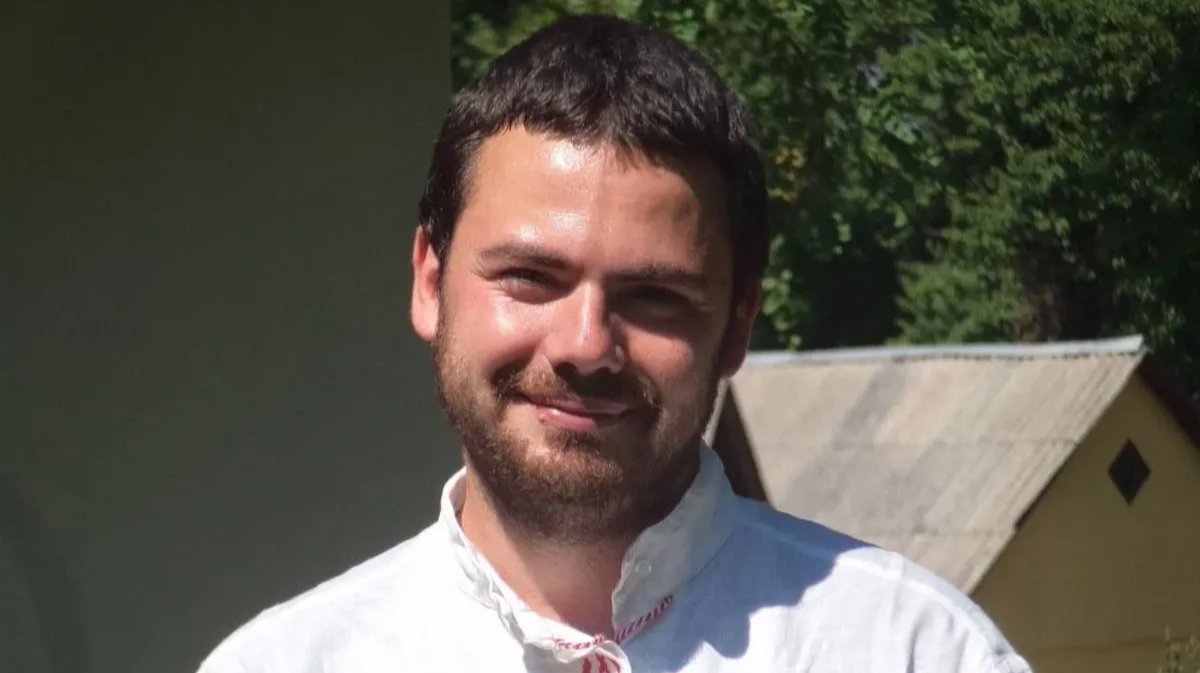A month ago, 19 April, Russian anarchist Dmitry Petrov, PhD in history, author of several books on the Kurdistan liberation movement, and associate at the Institute of Africa (Russian Academy of Sciences), was killed in Bakhmut, the hottest point in the Ukraine war right now. Dmitry was one of the founders of the Combat Organisation of Anarcho-Communists whose members are fighting for Ukraine.
Following his death, Petrov’s friends posted information proving that the man became actively involved in sabotage acts across Russia in the late 2000s. He was involved in “black bloc” operations like setting a traffic police post on fire and other direct action efforts which no one was punished for. Dmitry remained in Russia until 2018, combining city guerilla and history research. Over these years, he managed to write several books and take part in the 2011-2012 Moscow protests, Ukraine’s Maidan Revolution, the Belarus protests (2021), and visit Kurdish revolutionaries in Rojava, Syria (2015-2019).
I met Dmitry in the early 2010s at a history event in Russia’s Voronezh. I delivered a lecture about city partisans in post-war Europe, Dmitry piled lots of questions on me. He was a man with encyclopaedic knowledge about everything, he was a fantastic lecturer with a deep understanding of the topics he was passionate about: history, anarchism, environment.
Dmitry was a staunch anarchist. He made a huge contribution to the development of the anarchist movement in Russia, Ukraine, and Belarus, however pompous it may sound.
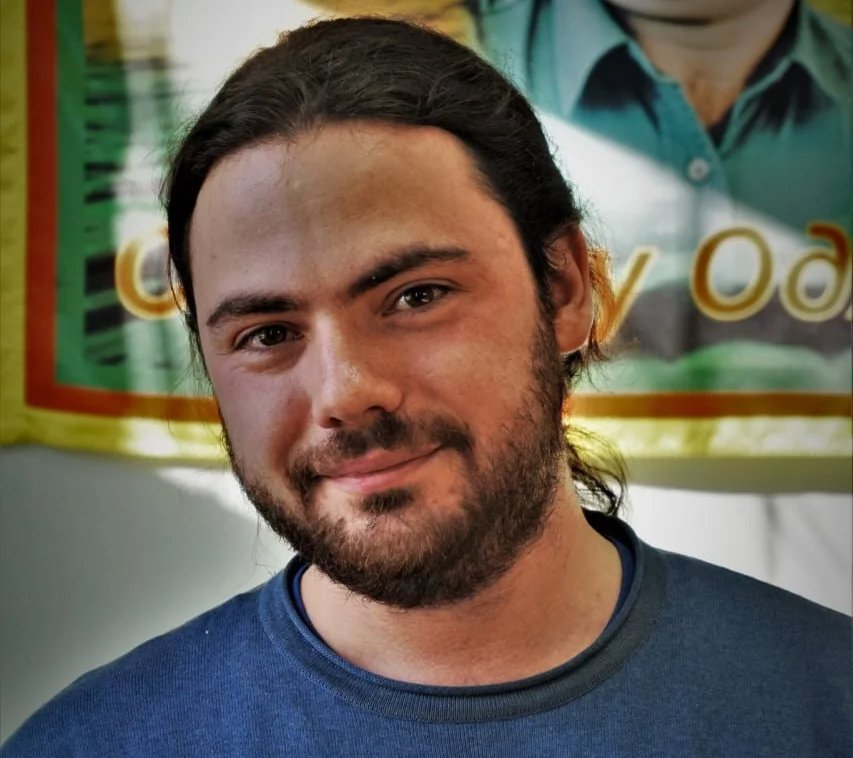
Dmitry Petrov. Photo taken from personal archives
In the mid-2000s, he started actively taking part in the fight against the widespread high-rise development and various animal rights and environment protection initiatives. That’s when he earned his nickname, The Ecologist, for his ecology-related efforts.
In general, nature was a crucial part of life, along with anarchism. He made dozens of ethnographic expeditions and trips to remote corners of Russia. He could tell you something about every place in Moscow, and there was possibly no museum in Moscow and the Moscow region that he did not visit.
There was another thing that surprised me when I met him: The Ecologist was a pagan. Moreover, he worshipped Slavic pagan gods, which was unheard of at the time in the antifa and left-wing circles.
The “paganism monopoly” then was held by the ultra-right movement, it was a common thing for nationalists.
Ecologist did not shy away from identifying himself as ethnically Russian. Even while in Ukraine, he was making a point of being a Russian national who defends Ukraine’s freedom against Putin’s invasion. His ties to the motherland were very strong; you could see it even in some of his last interviews. In his last letter, he noted that all nations have the same scourge: greedy and power-hungry rulers.
He was not a nationalist and shunned away any chauvinism and imperialism. In the late 2000s, he was an active member of the emerging antifa movement in Moscow. The ultra-wing violence was approaching its peak at the time. The numerous attacks by neo-Nasiz on migrants and non-conformists forced groups of youngsters to self-organise to put up resistance against ultra-right groups. Dmitry was a part of the so-called mob of Ivan ‘Bonebreaker’ Khutorskoy: they protected concerts and lectures against neo-Nazi attacks (well, to be fair, they also attacked neo-Nazis later).
Ivan Khutorskoy was shot dead in November 2009 by a far-right militant from the BORN gang. Prior to this, Anastasia Baburova, an anarchist and Novaya Gazeta journalist, and lawyer Stanislav Markelov were murdered on 19 January 2009. The murders were committed by the same neo-Nazi group BORN, affiliated with the Russian Image nationalist organisation. The latter were accused of having ties to the Kremlin.
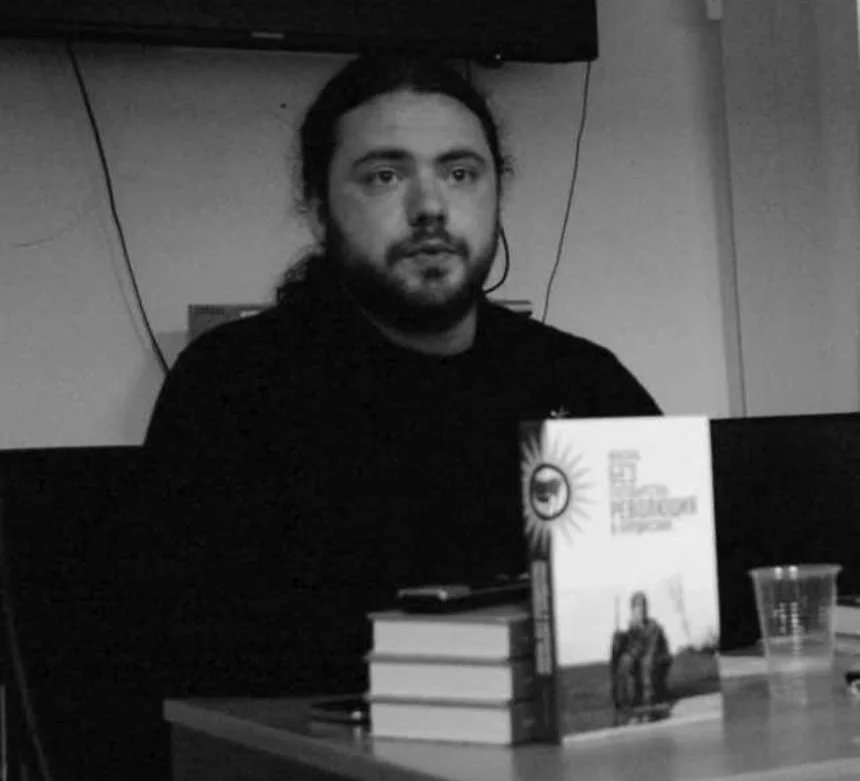
Photo taken from personal archives
Despite this dangerous lifestyle, Dmitry managed to stay active. He took part in all the Bolotnaya Square protests in Moscow back in 2012 and later welcomed the “hottest” Maidan protest period in a campsite in Kyiv. Dmitry then went to Rojava, Syria, where he studied the egalitarian society of Kurdish partisans. Being this busy, he still managed to write books and scientific articles.
In 2018, authorities cracked down on the anarchist movement in Russia, the Network case was launched (prosecution of anarchists from St. Petersburg and Penza who were charged with forming a terrorist group to topple the Russian government, all defendants were found guilty and slapped with prison terms between 5 and 18 years) — a few “terrorism” cases with dozens of detainees. Security services were now taking an interest in Dmitry: he learnt about it via his source while in Kurdistan and had to make a difficult decision not to return to Russia.
His residence was searched. The Ecologist moved to Kyiv where he continued to pursue activism and scientific research. And then the war broke out.
However, Dmitry joined the resistance against the Putin regime much earlier than 24 February 2022. After he died, reports emerged that he’d been actively involved in several sabotage partisan groups since the late 2000s. These groups set police departments and cars on fire as well as military enlistment offices (these have always been a crucial target for anarchists, even long before the full-scale invasion of Ukraine). One of the most publicised sabotage acts of this period was the traffic police station explosion in Moscow on 7 June 2011. The unknown organisation called Anarchist Guerilla claimed responsibility for the blast, while the security services were never able to find these covert bombers. As it turns out now, Dmitry was directly involved in these events.
The Black Blog project, created to cover city guerilla efforts, became the prime platform to publish information about these “popular revolt” kind of activities. Ecologist was also engaged in this. Anarchist partisans managed to set on fire more than 100 police stations and cars, draft offices, vehicles of state officials and wood-cutting hardware over several years (according to the Black Blog archives). The project was officially shut down in 2019.
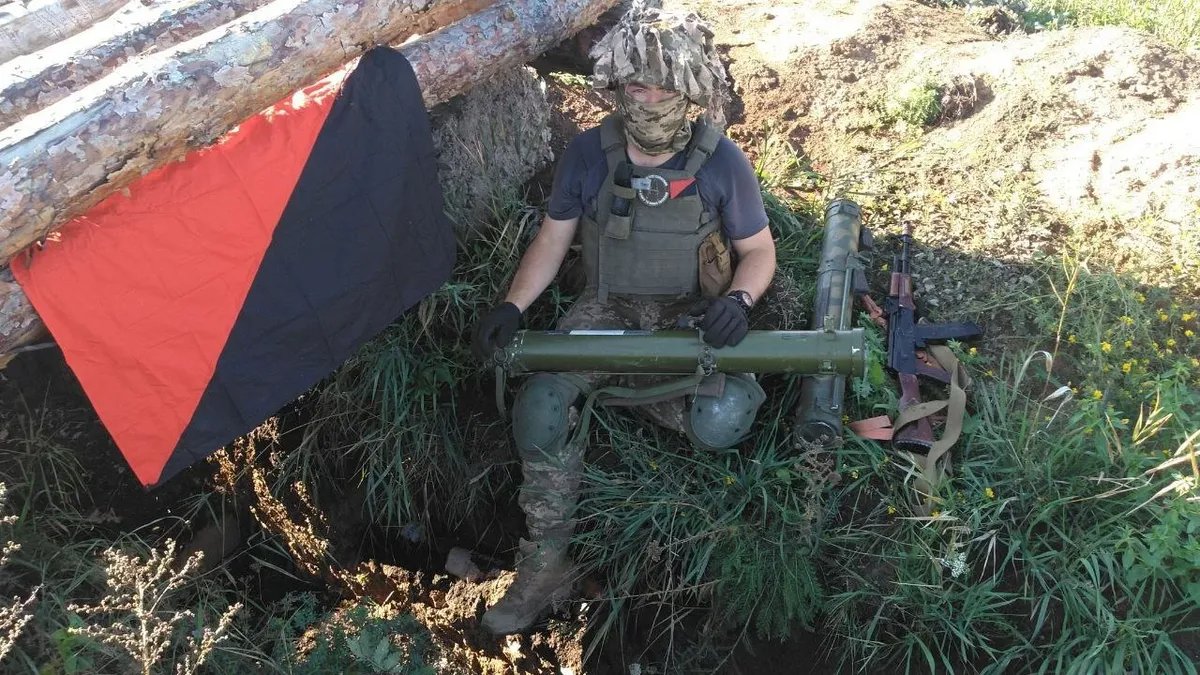
Photo: Komitet Sprotivu / Telegram
Dmitry was still involved in clandestine operations after his departure from Russia: during protests in both Belarus and Kyiv. He illegally crossed the Ukrainian border to protest in Belarus where he joined anarchist self-organisation movements, direct action plots, and clashes with law enforcement agents.
Despite this colossal experience in activism and staying true to his ideology, Dmitry was not removed from reality. He was an ordinary guy in real life: educated, intelligent, and charismatic. When you talked to him, you could never imagine that this man was lighting Molotov cocktails to throw at state institutions in the dead of night. He was the life of the party, you could have a drink with him, speak frankly and openly, or have a deep discussion. The friends that Dmitry used to conduct these activities with, remember him as a reliable and loyal associate.
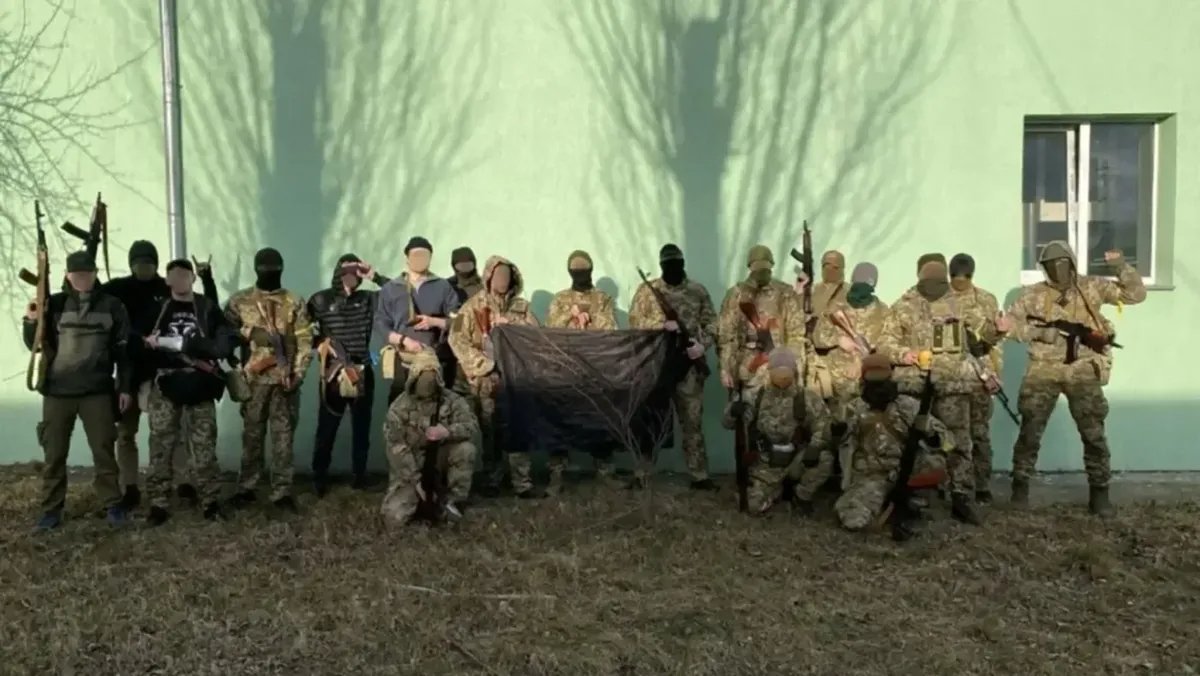
Anti-authoritarian unit. Photo: libcom.org
After the war broke out, Dmitry became a volunteer and later joined a territorial defence formation. He and his friends formed an “anti-authoritarian unit” as an independent regiment under the umbrella of the territorial defence force. However, red tape issues forced the unit to disband, while The Ecologist started looking for ways to get to the frontline. Eventually, he managed to achieve that but through long and tiring trials and tribulations. Dmitry was part of Ukrainian operations to liberate several occupied territories.
Dmitry was killed in an artillery attack on Bakhmut surrounded by his friends: Cooper Andrews and Finbar Cafferkey, anarchists and foreign volunteers, who reported that Dmitry had been killed.
Dmitry Petrov (The Ecologist, Ilya Leshy, Phil Kuznetsov — his pseudonyms over the years) was a historian and he had the chance of making history himself. He made the most of this opportunity.
Dmitry Petrov was 34 years old.
Veniamin Volin
P.S.
In February 2023, Dmitry Petrov sat down for an interview with the Public Calls podcast about the anti-fascism history which was never published. When asked what he sees as victory, he said the following:
“A victory for me is primarily the military defeat of Putin’s army and a public revolt in Russia. I dream that this will disturb our long-suffering Russian society, it will rise up and topple the shit we’ve been forced to carry for more than 20 years now. I sincerely hope it will happen. This is one of the most important reasons why I am here, on the frontline. I want to make a personal contribution to the defeat of this monster that has now so horribly spilled over the Russian border and that, I hope, will break all its teeth here.”
Join us in rebuilding Novaya Gazeta Europe
The Russian government has banned independent media. We were forced to leave our country in order to keep doing our job, telling our readers about what is going on Russia, Ukraine and Europe.
We will continue fighting against warfare and dictatorship. We believe that freedom of speech is the most efficient antidote against tyranny. Support us financially to help us fight for peace and freedom.
By clicking the Support button, you agree to the processing of your personal data.
To cancel a regular donation, please write to [email protected]
